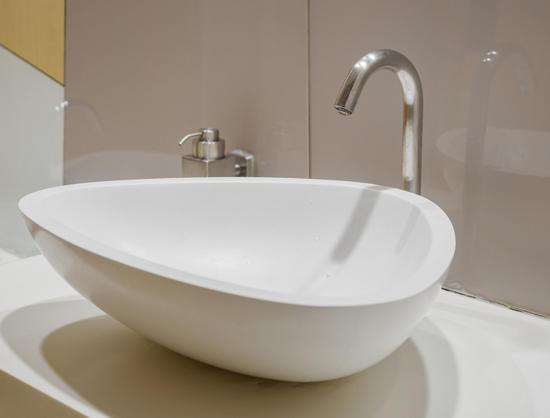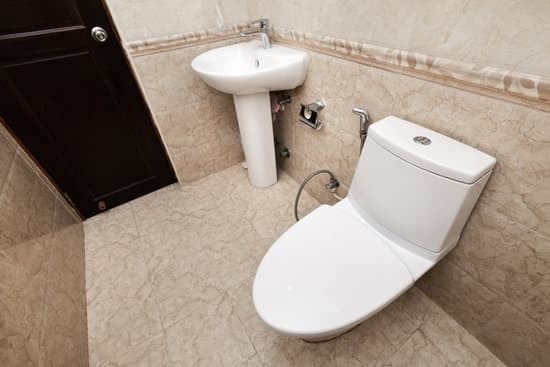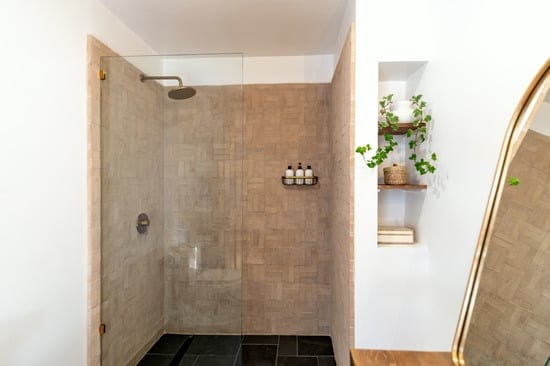Are your bathroom shower tiles looking dull and dirty? Don’t worry, we’ve got you covered! In this article, we’ll show you step-by-step how to clean your bathroom shower tile to make it shine like new. With the right cleaning supplies and methods, you can easily remove stains and grime without any hassle. Plus, we’ll provide you with maintenance tips to keep your tiles looking pristine for a long time. Get ready to transform your bathroom into a sparkling oasis of cleanliness!
Gathering the Necessary Cleaning Supplies
You’ll need to gather the necessary cleaning supplies for cleaning bathroom shower tile. Start by organizing your cleaning tools. Grab a bucket, scrub brush, sponge, and a microfiber cloth. These items will help you effectively remove dirt and grime from your shower tiles.
Before you begin, it’s important to take safety precautions during cleaning. Make sure you have protective gloves and goggles on hand to prevent any chemical reactions or splashes from harming your skin or eyes. Ventilate the area by opening windows or using a fan to avoid inhaling fumes from cleaning products.
Remember to read the labels of your chosen cleaning products carefully and follow all instructions for use. Some cleaners may require dilution with water before application.
By gathering the necessary supplies and following safety precautions, you’ll be ready to tackle the task of cleaning your bathroom shower tile effectively and safely.
Preparing the Tile Surface for Cleaning
To effectively prep the surface, it’s important to remove any excess grime or residue. Before you begin cleaning the shower tile, there are a few pre-cleaning steps you should take. First, make sure to clear the area of any personal items or toiletries to avoid getting them wet or damaged during the cleaning process. Next, open up windows or turn on the ventilation fan in your bathroom to ensure proper air circulation and prevent inhaling any harmful fumes from cleaning products. This is especially important if you’re using strong chemicals. Additionally, put on a pair of rubber gloves to protect your hands from harsh cleaners and potential skin irritants. By taking these simple precautions, you can ensure both a clean and safe environment while tackling those stubborn shower tile stains.
Choosing the Right Cleaning Method
Before starting, it’s important to select the appropriate method for cleaning the tiled surface. When it comes to cleaning bathroom shower tile, there are a variety of options available. Here are some suggestions to help you choose the best cleaning method:
- Use a mild detergent: Opt for a gentle soap or mild detergent that is specifically formulated for cleaning tiles. This will ensure that your tiles stay in good condition and won’t be damaged by harsh chemicals.
- Try eco-friendly options: If you’re concerned about the environment, consider using eco-friendly cleaning products. These can be just as effective as traditional cleaners but are made with natural ingredients that are safer for both you and the planet.
- Test before applying: Before applying any cleaner to your entire shower tile surface, test it on a small inconspicuous area first. This will help you determine if there are any adverse reactions or discoloration.
By choosing the right cleaning method and using the best cleaning products, including eco-friendly options, you can effectively clean your bathroom shower tile while keeping safety in mind.
Scrubbing and Removing Stains
When scrubbing and removing stains, it’s important to choose a cleaning method that effectively tackles tough grime while protecting the surface. To ensure safety, start by taking preventive measures like wearing gloves and ventilating the bathroom. For DIY cleaning solutions, consider using natural ingredients such as vinegar or baking soda. These can be mixed with water to create a paste or solution that is gentle yet effective in removing stains. Apply the mixture to the stained areas and let it sit for a few minutes before scrubbing with a soft brush or sponge. Rinse thoroughly with warm water and dry the tiles completely to prevent any residue buildup. By following these steps, you can achieve clean shower tile without resorting to harsh chemicals that may harm both yourself and the environment.
Finishing Touches and Maintenance Tips
To keep your shower looking its best, it’s important to regularly maintain and add finishing touches for a polished appearance. Here are some tips to help you with the finishing touches and maintenance of your bathroom shower tile:
- Create a maintenance schedule: Set aside time every week or month to clean and inspect your shower tiles. This will help prevent any buildup of dirt or grime.
- Use a mold-resistant sealant: Apply a mold-resistant sealant to your shower tiles to prevent the growth of mold and mildew. This will keep your shower looking clean and hygienic.
- Keep the area well ventilated: Proper ventilation is key in preventing moisture buildup, which can lead to mold growth. Open windows or use an exhaust fan during and after showers.
- Wipe down surfaces after each use: After using the shower, wipe down the tiles with a squeegee or towel to remove excess water and prevent water spots.
- Regularly inspect caulk and grout lines: Check for any signs of damage or wear on the caulk and grout lines. Repair or replace as needed to maintain a watertight seal.
By following these maintenance tips, you can ensure that your bathroom shower tile stays clean, safe, and free from mold.
Conclusion
Now that you have learned how to clean bathroom shower tile, maintaining a sparkling and sanitized space is within your reach. By gathering the necessary cleaning supplies and preparing the tile surface properly, you can easily remove stains and grime. Remember to choose the right cleaning method for your specific tile type and scrub diligently to achieve optimal results. With these tips in mind, your shower will not only look great but also stay fresh for longer periods of time. Happy cleaning!







